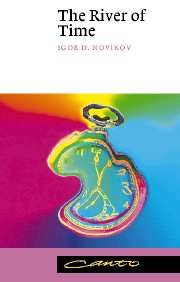Despite all this, in spite of all the progress, the nature of time remains to a large extent a mystery for us. Regardless of the millennia counted by the history of science, we are only at the very beginning of the way to comprehend the essential meaning of time flow.
Our knowledge about this ‘grand river’ was gleaned very slowly. The science of the ancient Greeks defined the concept of time as an independent category, as a universal property inherent in all objects and phenomena of the material world. It also established that time does not move in circles, that it is not cyclic, that it moves inexorably from the past to the future.
The laws of classical physics, which found their exhaustive expression in Newton's work, assigned to time the role of empty duration, without beginning or end, flowing eternally at a constant rate, regardless of what events take place in the world.
The revolution in physics that began a century ago, and the subsequent relentless progress in this science produced, numerous overwhelming discoveries. We now know that the rate of flow of the river of time can indeed be influenced. In principle, a ‘flight’ can be made to the very distant future, and, who knows, one may be able to move ‘upstream’ on the ‘time river’, that is, into the past; technically, of course, both sorts of time travel remain unfeasible at present.
